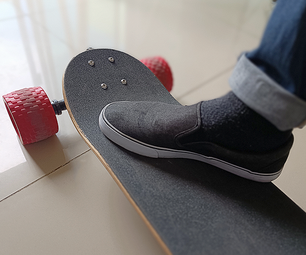Introduction: Stone Veneer Fire Pit Patio
I set out to build a small but permanent fire pit/patio area. The dimensions got revised as I went along though, and I wound up with a fairly large flagstone patio and sitting wall. I'd never taken on a masonry project, so I relied heavily on internet help videos, how-to's, and some old-fashioned trial and error.
Hoping tthis will give a little help to someone else looking to do a similar type project. Mine is different from many of the ones I found online since it is a raised in-hill patio, most of the ones I saw were dug into a flat area.
The main thing I learned is that flagstone is time intensive. If you're looking for quick and easy, use a wall block or a stack rock veneer. You might also choose a uniform patio pavers, as flagstone varies in size and thickness, making leveling a challenge.
With that said, there are some issues I did not overcome, but I'm overall pleased with the results.
Tools:
shovel
wheel-barrow
pic
trowel
rake
circular saw (with masonry blade)
rock hammer
rock chisel
access to water hose
dust masks
level
sponges
buckets
rubber mallet
tamper
Materials list (approximate):
Quikrete (40 bags of 60 lb)
Mortar (30 bags of 60 lb)
concrete blocks - Qty 60
cap block- Qty- 24
1/2 ton of yellow sand
1/2 ton of #7/8 gravel
1/2 ton of 'thin flagstone'
3/4 ton of 'standard flagstone'
firepit 'kit'
Total Cost: $1500
Step 1: Dig Out the Hill
I eyeballed and scraped out the basic outline of the shape I wanted. I then began scooping out dirt. (I used a wheel barrow to move some of the dirt across the yard to a low-lying spot). I piled most of the dirt behind the pit to be used for purposes of later back-filling the wall.
I then dug out a 20' footing (16" wide and 16" deep). The area was leveled out in the footing and in the patio area.
Step 2: Dig and Pour the Footing
I did a lot of research to see what kind of base was necessary for a sitting wall. Most sources said a 16"; x 16"; footing with a gravel base (I used 10 bags of all-purpose gravel from HD). Level the rock base out. I then used 18 bags of 60# quikrete mixed by hand in my wheel barrow. I poured this over two rows of rebar set on bricks.
We (I had help on this step) simply mixed up the Quikrete fairly runny and poured it as evenly as possible throughout. Tried to leave it as level as possible. I let this completely set, though it might have been better to begin setting my first row of concrete block before it had completely hardened.
I may have overdone it by even having a concrete footing for a 3 ft wall, but it made building a plumb and level wall much easier than it would have been otherwise.
Step 3: Drystack
I laid the blocks out dry to be sure they would fit.. No problems, so a mortar was mixed to begin wet laying the blocks.
Step 4: Mortar the Blocks
Note- I found out later that a concrete adhesive may have been the way to go here. Probably a lot cleaner/simpler than trying to use mortar.
I mixed up one 60# bag of mortar with just over a gallon of water (I used a spray hose and mixed in the wheel barrow as I went). The mix was something between peanut butter and oatmeal. Slapped it on with a trowel and focused on a smooth face and level blocks.
I then went back and poured quikrete down the cells of most of the blocks for extra strength (I drove 4ft rebar down these cells as well).
I also went back and added a back row of blocks behind the original for a thicker wall. A another footing was poured to host this back wall which would require less than half as many blocks.
Cap blocks were added and gaps were filled with more mortar.
Step 5: Mark Out the Full Patio
The patio changed in shape and size as the project proceeded. It started as a semi-circle that became a full circle and merged into an oval.
I first planned on holding the ground/pavers in place with a plastic border sold at HD. But it became apparent that on higher ground, such as my patio, this would not be effective.
So I decided to dig another footing in order to use blocks to contain the patio. I am pleased that I went this route despite the extra work and expense. Without it, the project may ha have wound up a failure washing away in the first big rain.
Step 6: Spread a Layer of Gravel and Sand
I got a half-ton of 7/10 gravel from a local supplier ($28) and spread it out over a level ground . I proceeded to tamp this down using an improvised tamper (patio umbrella base w/ broken shovel, that worked like a charm). It wound up being about 4" worth.
I bought a half-ton of yellow sand from a local dealer ($28) and spread it out in anticipation of laying flagstone. Tamped this down as well to level w/ a slight slope away from the wall. This wound up being about 2-3" thick.
Step 7: Locating the Veneer
I was so impressed with the look of this flagstone on someone else's project, I had to have it for my patio. (I kind of wish I had used a simpler product to work with for an amateur like me).
I went to a local dealer and picked up the veneer (~1" ) flagstone. They charged about $280/ton . I bought about $180 worth. I picked it up before the patio floor since the floor was not in stock and would arrive out of state the following week.
Step 8: Mortar Veneer on Wall
Note*- This process would've been better completed after laying the floor, but being pressed for time, and not having the floor pieces available, I began.
I went ahead w/ the process of putting a scratch coat of mortar on the block wall. This allowed for better adhesion when I went back w/ the veneer itself. Using a trowel I placed a 1/2" of mortar on each stone along with a gap in the middle for suction to the wall. I started low and worked around from the bottom up. With the curved shape of the wall a vertical placement for large stones was more flush than horizontal, though I placed a couple of that way too.
I tapped each one on using a rubber mallet and tried to leave a 1/2" gap between each, though I found some of my stones touching. Vi tried to score and cut some of the stones but was only successful about half the time. I'm sure a pro would've made much cleaner lines than I did.
Where big gaps were left, I filled in w/ some smaller stones as needed.
Step 9: Lay Patio Stones
To lay the stones level, I dried laid them 3 different times first to get a look at them. I made a limited amount of cuts with my skill saw and masonry blade to score the stone and used a hammer to shape (sometimes the attempts worked, sometimes not so much)
When I was confident that I could level the stones out (with a slight slope leading away from the wall) I began lifting them one at at time and placing a quikrete sand/topping mix (required only water) in such a way that lifted each stone in an even fashion to that of the thickest stones (they were not of any conformity in thickness, which made this much more difficult than if is used pavers). Placing mortar under each stone and levelling them out was tedious work.
Step 10: Add Mortar/grout
I've seen on videos how easy a grout bag is to use, so I went on out and got one. Maybe I didn't get the mix right but I couldn't get the mortar to flow very easily. So I took out the trowel and used it to fill the gaps along with a sponge to wet down the excess mortar.
This was a long process that I had to break up into many sessions ( 45 min after work, that kind of thing).
Every so often, 20min after beginning mortar application I would use a wet sponge to clean off the stones. This worked pretty well overall.
I still had issues with mortar residue. I've read that muriatic acid or some high powered detergents can remove this residue .
Step 11: Add Firepit
My pit came from the rock store where I got my flagstone. It was a $300 kit, which after pricing some other option that would have required fire brick as a lining and plenty of other rock to make an eye-pleasing center piece.
I dry-stacked this once and took the picture. I am debating whether to use mortar to lay the first run to level it out a little better.
Can't wait to have a first fire, but now all I can think about is landscaping the area around it. Going to need some gravel and perhaps a raised landscape bed behind...

Participated in the
Gardening & Homesteading Contest









